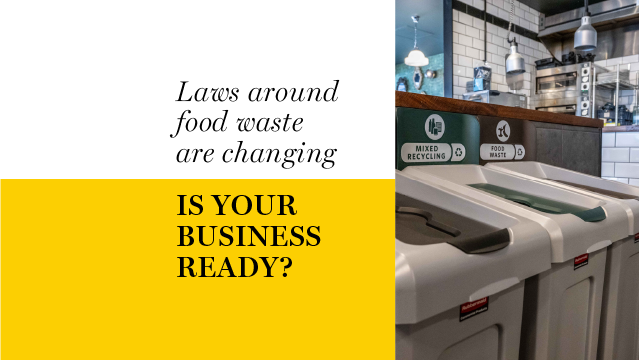
Turning the tables on waste: the new food recycling rules in England
From March 31st 2025, businesses in England must separate their food waste for recycling. The new legislation dictates that organic waste cannot be put into general waste and businesses will not be able to use food waste disposal equipment.
With 920,000 tonnes of food wasted by hospitality and food service outlets each year*, and the average UK hospitality business spending up to £50,000 every year on sending food waste to landfill*, it’s clear that the industry has some big changes to make.
While prevention is the ideal scenario, hotels and restaurants are always going to experience a level of food waste, and disposing of that waste correctly will no longer be a choice for businesses in England.
WORLD OF WASTE
In the UK alone, around 40% of food waste is currently disposed of via landfill*
DEADLY EMISSIONS
Food waste alone generates 8-10% of global greenhouse gas emissions*.
HOW SEPARATING FOOD WASTE BENEFITS BUSINESS
Meeting your business’ legal obligations, helping maintain hygiene standards, controlling bad odours and boosting sustainability credentials are just a few of the business benefits of correctly separating food waste.
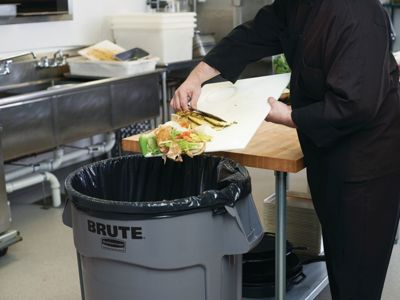
As well as avoiding hefty fines for non-compliance, food waste is up to five times cheaper to dispose of per kilogram than general waste*, especially with landfill taxes set to increase by 20% from April 2025.
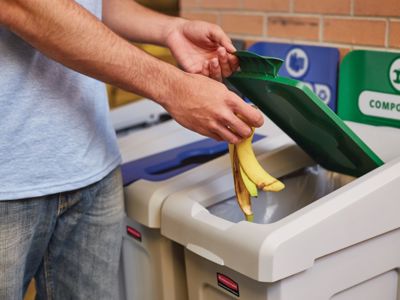
Studies show that sorting scraps to divert them away from landfill during food preparation, together with prevention and donation actions, could reduce overall food waste by at least 10%*.

From food to fertiliser: when recycled properly, food waste can be converted into fertilisers for agriculture or used as a renewable source of energy.
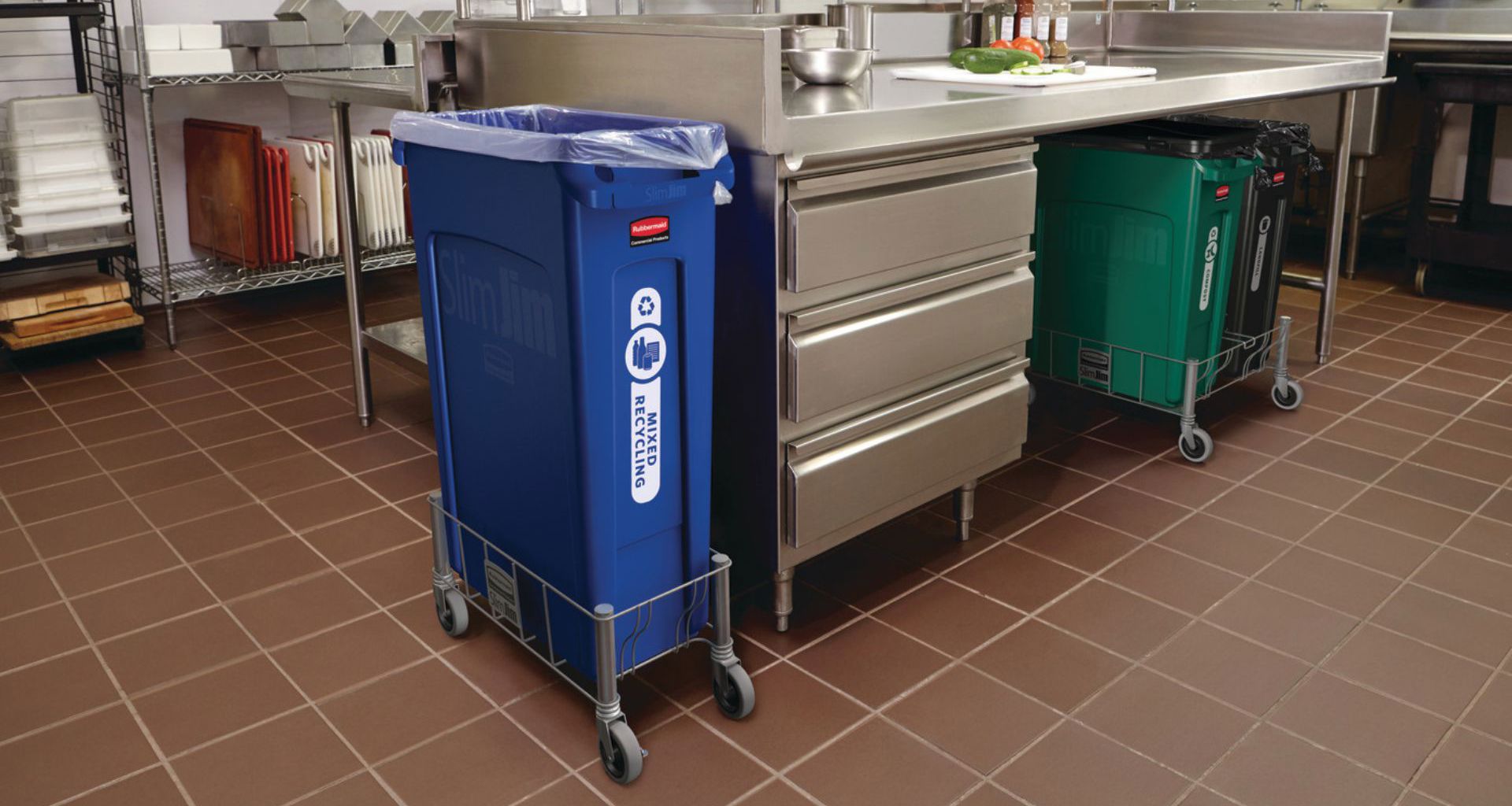
With commercial recycling legislation on the horizon, and with a business-wide focus on reducing and more sustainably disposing of waste, Travelodge carried out a food waste recycling trial utilising the RCP range. After successful results, they introduced food recycling across all their Bar Café hotels with some impressive results. In the first month, they were able to sustainably dispose of 36 tonnes of food waste, with over 400 tonnes projected per year.
Find out how The Merrion Hotel implemented a range of new recycling solutions to achieve their zero-waste goal and improve sustainability credentials.
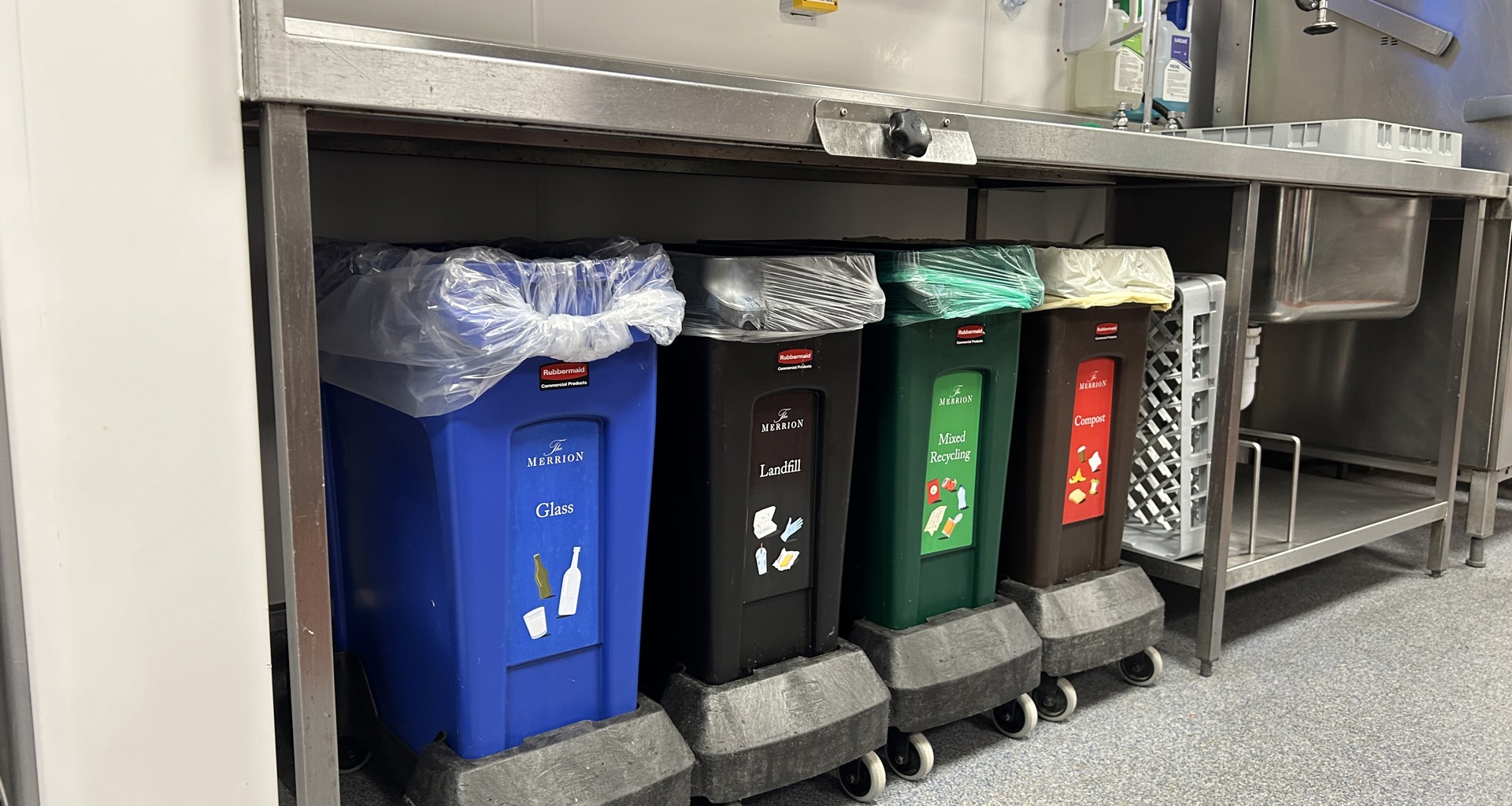
BETTER RECYCLING IS BETTER FOR BUSINESS
An efficient multi-stream recycling system could see your facility cut costs. Find out how improving waste management processes in line with new legislation saw hospitality businesses benefit and how your business could do the same.
* Fonti: www.rubbermaid.eu/it/sources